11 death rattle games that tanked your favorite studios
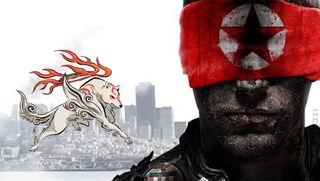
Nice to know you
It's a shame when a studio you like shuts down. Downsizing or "restructuring" is one thing, but the total loss of a development team is no fun for anybody. Bloated budgets, simmering stockholders, and doomful deadlines can cause some of your favorite studios to shut down. Sometimes it comes down to one, final failure: a death rattle game, if you will.
Many games underperform when it comes to actually making money, but these games tanked so hard they dragged their parent studio down with them. You can point to them and say, "That's the game that sent Big Game Developers Incorporated" to the grave. Games like

Shadowrun runs Fasa Studio under
What would you say if told you an old-school tabletop RPG was being turned into a first person shooter? Dungeons and Dragons becoming an Unreal Tournament-like title would be pretty cool, right? That was the motivation behind Shadowrun, the flagship title of Microsoft's Games for Windows Live, and it was the first big release to support PC-to-Xbox 360 connectivity. The big MS went to Fasa Studio, developer of various Mechassault and MechWarrior titles, for the job.
Well, big release is probably the wrong moniker here. A $60, multiplayer only shooter with barebones maps and modes isn't fun to many people, and both the review scores and sales numbers proved it. A few months after release, developer Fasa Studio was shuttered.
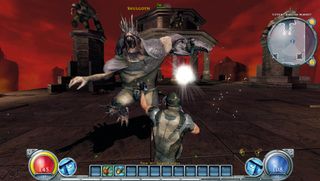
Hellgate: London dooms Flagship Studios
Hellgate: London was promising. Flagship Studios was formed by former Blizzard employees, and its first game looked to follow in the action-RPG footsteps of classics like Diablo. Shiny guns and swords to loot? Check. Lots of demons to fight? Check. A grimy, post-apocalyptic London to explore? Check.
Unfortunately, the true apocalypse for Hellgate: London was a swarm of game-breaking bugs at launch. Avatars were spontaneously deleted, players were billed multiple times by accident, and buckets of money were poured into fixes. Flagship Studios went into crisis mode, but its efforts were futile. Mass quittings happened, and the teams only other project, Mythos, was quickly abandoned.
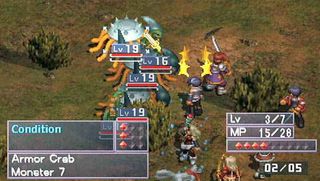
Growlanser: Generations casts death on Working Designs
RPG fans of the 90s appreciate Working Designs for hits like Arc the Lad, Dragon Force, and Lunar. The publisher worked tirelessly to bring JRPG hits to American shores, and for that you should be grateful.
Sadly, the amount of you who should be grateful is quite small. Working Designs was already catering to a niche audience, one that continues to shrink year after year. I mean, other than Persona, can you name another recent JRPG to make it big in the US? Have you ever even heard of Growlanser? It was the last series WD tried to bring over, and the one that brought it down.
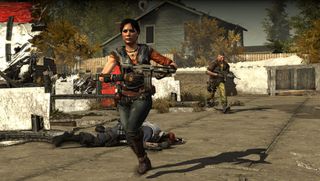
Homefront puts Kaos Studios in the red
Kaos Studios was born out of the PC mod community, so it was a home for promising multiplayer titles. Only two games came out of this promise, Frontlines: Fuel of War and Homefront. Unfortunately, it was the latter that did them in.
Homefront was too hyped for its own good. It was painted as a thought-provoking shooter about the invasion of the United States by a unified Korea, but an ever-changing development cycle (publisher THQ disagreed with Kaos on several fronts) led to a half-baked product. Lukewarm reviews led to poor sales, and poor sales led to the demise of Kaos Studios. The series became something of a curse after that, with the sequel taking studio Crytek UK down just a few years later.
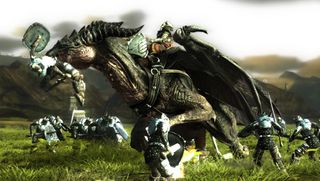
Lair burns down Factor 5
It's tough to find a Star Wars fan who doesn't enjoy the Rogue Squadron series. The spacey vehicle shooter games made waves in the early 00s, leading developer Factor 5 to try its formula in a different setting: medieval times.
That venture is Lair, and it flopped during the early days of the PS3. Poor Sixaxis controls - and the studio's refusal to patch in new control options - led to poor reviews and poorer sales. Oh, and even though it was the first PS3 game to offer remote play (featuring an actual analog stick!), many portions of the game couldn't be completed with the PSP's limited controls. Lair just wasn't meant to fly.
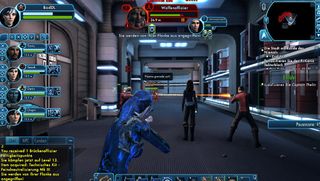
Star Trek Online sends Perpetual Entertainment into darkness
The impossibly popular Star Trek property online? It preempted Star Wars: The Old Republic (rife with its own problems) too. Can you smell the potential success? Perpetual Entertainment smelled it, so it put its only other project, Gods & Heroes: Rome Rising on hold.
I bet you already see the problem here: a studio with zero finished products put in the driver's seat of one of geekdom's biggest properties. The game shifted focus several times, and Perpetual was hit with lawsuits for unfinished promotional materials: it was simply too much for the fledgling studio to handle. Both Star Trek Online and Gods & Heroes were sold off and released by different studios. For a company called perpetual, it sure stopped pretty quickly.

Def Jam Icon disses EA Chicago
Why can't you be like your big brother? That's the main criticism of Def Jam Icon. It's a perfectly acceptable fighter featuring MCs like TI and Eminem throwing down in urban alleys and basketball courts. Shame it's just not a particularly mind-blowing fighter. But Fight Night Round 3 is stellar, and it also came from EA Chicago.
That was the problem. EA Chicago had earned a reputation from classics like Fight Night Round 3, and Def Jam Icon failed to meet the fans' expectations--to the point where EA's vice president called it out for not meeting its own standards. Ouch. The studio went bye bye, and Fight Night was handed over to another team.
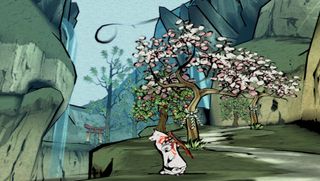
Okami proves too beautiful for Clover Studios
Critical darling: a game beautiful to critics but tragically passed over by the public. In the world of gaming, Okami is the prime example. Clover Studios was an independent studio behind titles like Godhand and Viewtiful Joe 2, and it got better and better with each game. This reached its climax with Okami, a water-color Zelda-esque tale of a wolf and her celestial paintbrush.
Review scores? Stellar. Sales numbers? Shitty. That led publisher Capcom to shut down the studio, axing one of the most promising teams of the decade. Timing and concept didn't help much either; Okami released right at the end of the PS2's life cycle, and it is a game about a dog with a paintbrush. Still, you should have played it.
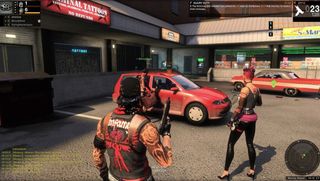
APB puts a bullet in Realtime Worlds
APB, or All Points Bulletin, isn't the only MMO on this list, but it's the most distinctive, trading castles for skyscrapers and spaceships for cop cars. An MMO of that ilk isn't unheard of, but APB was first to really turn heads. The studio was founded by a Grand Theft Auto creator, and its first game was Crackdown: what better team could you want for a crime MMO?
The game that was projected to make "upwards of hundreds of millions of pounds" gained plenty of investment during development, but the release just didn't live up to the hype. Unfinished content, bugs, and outdated mechanics led to the game shutting down after just three months. It eventually resurfaced as the free to play APB: Reloaded, but Realtime Worlds had already bitten the dust.
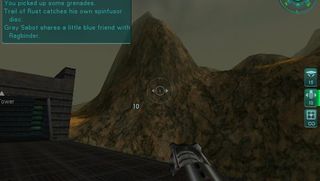
Tribes 2 crashes Dynamix
Starsiege: Tribes showed up at the close of the 1990s and rocked the world of first person shooters on PC. The Unreal Tournament-like arena shooter was hugely popular, with 40 maps, a slew of weapons, and one of gaming's favorite jetpacks.
And so it was that the PC community eagerly awaited a sequel. Unfortunately, 2001's Tribes 2 was rushed out of the door, and fans were massively disappointed in its overload of vehicles, constant crashing, and generally poor performance. Expansions were canceled, patches fixed problems by nerfing other game mechanics, and community features were cut entirely. When Dynamix's parent company, Sierra Online, was bought the same year, little Dynamix was left behind.
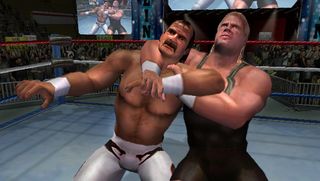
Showdown: Legends of Wrestling choke slams Acclaim
Acclaim once stood high, releasing Turok and WWF games year after year. But when the well ran dry on Turok and the WWF license was lost, it had to take risk: Legends of Wrestling. It was a novel idea, a wrestling title sporting wrestling legends of the past like Hulk Hogan and Andre the Giant. It was also hella expensive thanks to the likeness fees of those retirees.
Poor reviews followed, and low sales numbers came next. With that much staked on Legends of Wrestling, Acclaim went into a downward spiral. Lawsuits from the Olsen twins and cyclist Dave Mirra soon followed, and a series of insane PR stunts sealed the studio's fate.
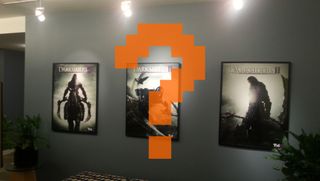
Goodbye for now
It hurts to say goodbye, but sometimes it's necessary. If you miss any of these developers more than others, feel free to leave them a eulogy in the comments below.
Sad about some other developers closing down? Check out these great game studios we lost during the 7th console generation to see how your favorites are doing. And for a look at some studios in their early years, check out your favorite game developers...before they were famous.
Tony lives in Maryland, where he writes about those good old-fashioned video games for 12DOVE. His words have also appeared on GameSpot and G4, but he currently works for Framework Video, and runs Dungeons and Dragons streams.
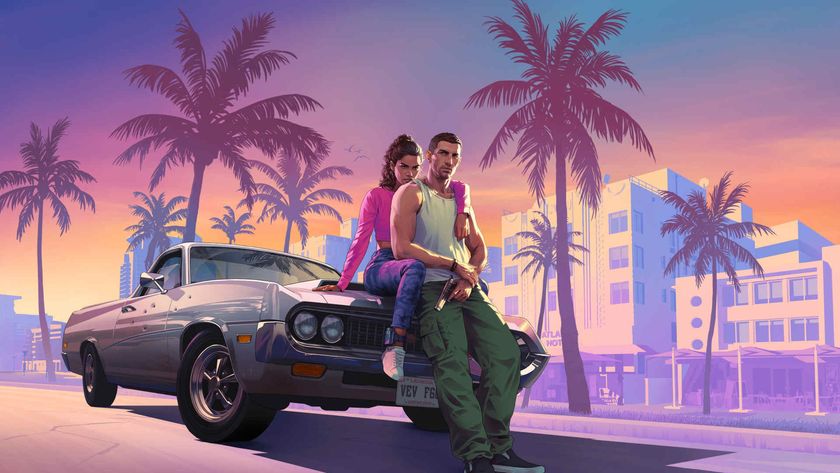
Ahead of GTA 6, Take-Two CEO says he’s “not worried about AI creating hits” because it’s built on recycled data: “Big hits […] need to be created out of thin air”
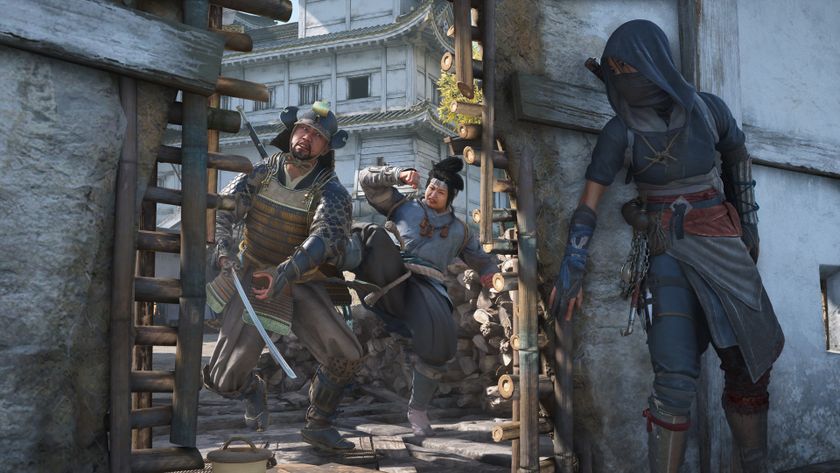
Assassin's Creed Shadows devs "actively looking at" an even harder difficulty mode for the RPG: "How challenging do you want it?"

Ahead of GTA 6, Take-Two CEO says he’s “not worried about AI creating hits” because it’s built on recycled data: “Big hits […] need to be created out of thin air”

Assassin's Creed Shadows devs "actively looking at" an even harder difficulty mode for the RPG: "How challenging do you want it?"











